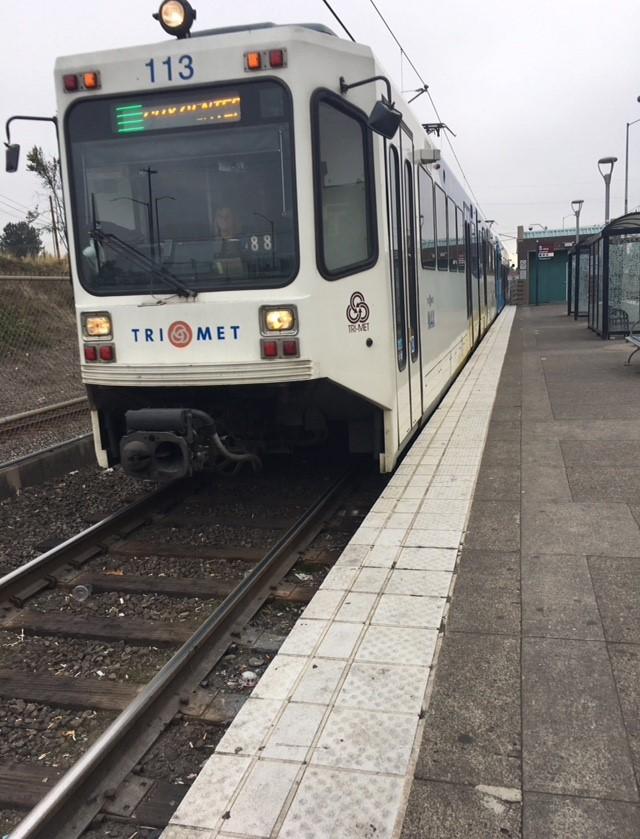
Have you ever been on the MAX train and seen people with green or orange vests board the train and walk down the aisles? Those are fare inspectors for TriMet. Their job is to check and see if everyone on the MAX has paid for their ticket, and not just hopping aboard for a free ride. However, because fare inspectors are allowed to ask randomly for proof of tickets, passengers are now complaining that the inspections are unfair.
The issue of unfair inspections has been causing friction among TriMet inspectors and passengers for some time now. Last March, a Trimet official and a Portland Police officer asked Ana del Rocío, a passenger who got off the MAX, for her fare. She did as she was told and activated her fare on her phone. The officer proceeded to ask for her name, which was Rose Valderrama. However, because she goes by Ana del Rocío and not her legal name, the police officer arrested her for giving false information. She later filed against the TriMet inspectors. A Multnomah County judge ruled that the actions of TriMet were unconstitutional, and “TriMet officers or police who make stops to inspect fares need individualized suspicion. In other words, they should have a reason to believe that the person they stop did not pay to ride.”
Sofina Gilbert takes the MAX everyday to work and says she has been stopped a few times by ticket inspectors and once by an officer. The experience of being inspected is extremely nerve-racking, even if you have proof of payment, and makes her uncomfortable. “I understand the reason TriMet wants to check fares, but honestly I do not think it is very necessary,” says Gilbert, “The way they check now is so random, they should come up with a better system.” While she does not think officers are directly targeting people of color, she does mention that “the people on the MAX are probably going to be people of color over white, just based off of financial situations.” Gilbert knows that these inspections hurt people in financial need, explaining that, “it’s getting harder and harder to pay for a ticket using just money, you now need to get a card, which is attached to a device.” Fare inspections are impacting the people who really need to take the MAX, which consist of people with lower incomes, or no other means of transportation.
Fare inspections, as controversial as they are, continue happening as normal as there is no definitive conclusion on what will be done. TriMet has cited judges regarding similar incidences on payment of a fare with one judge saying that, “If you do not want to show your proof of fare, you do not get on MAX, because the requirement to be on MAX is to have valid fare and show proof upon demand, to an inspector or a police officer.” While this seems harsh, it is the common outcome of transportation fare related cases. Organizations like the American Civil Liberties Union (ACLU), who are representing Ana del Rocío, push back, saying that it “will continue to take TriMet to court over what it believes to be unconstitutional fare inspections.”
While proof of payment has been creating conflict between passengers and TriMet employees, it looks like TriMet is attempting to tone down the idea of the randomness of their fare checks. However, they have stated that they are allowed to continue with random fare checks as that is the condition a passenger agrees to when riding the MAX or bus lines.

































